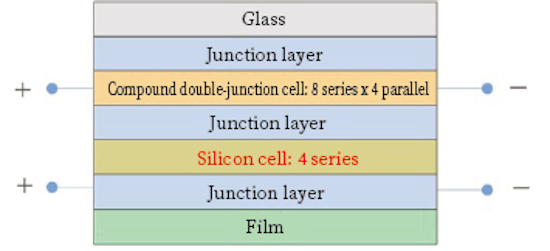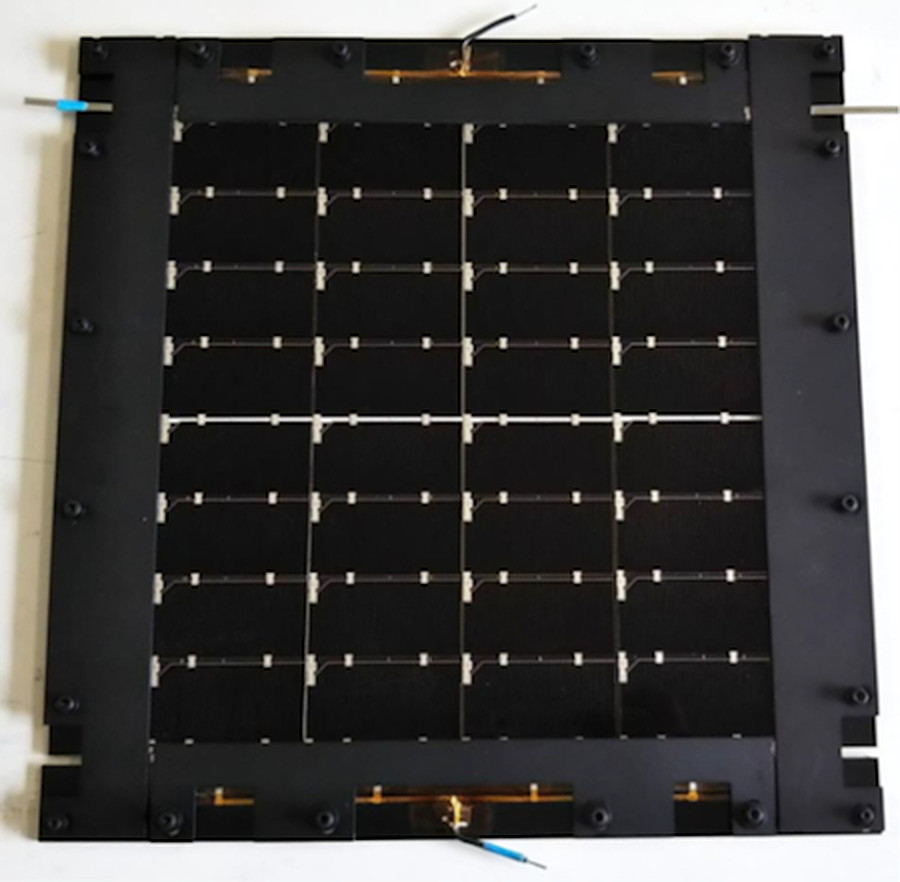From pv magazine Global
Japanese electronics manufacturer Sharp announced it achieved a power conversion efficiency of 33.66% for a silicon tandem solar cell.
The company claimed in a press release that this is the world’s highest efficiency for a stacked solar cell that combines a tandem double-junction solar cell and a silicon solar cell. The result is said to break the world record of 32.65% that Sharp achieved under a project supported by Japan’s New Energy and Industrial Technology Development Organization (NEDO) in 2022.
“The prototype solar cell module has achieved high efficiency by efficiently converting light of various wavelengths into energy by a new structure which has compound two-junction solar cells on the top layer and silicon solar cells on the bottom layer,” the manufacturer said.
“Additionally, the thickness of the tandem double-junction solar cells can be reduced to less than one-third that of conventional triple-junction solar cells, reducing material costs.”
The cell has a double-step junction of indium/gallium/phosphorous and gallium arsenide as the top layer and silicon as the bottom layer.

Image: Sharp
* The article has been amended to reflect that the solar cell is not a perovskite-silicon tandem device but a silicon tandem solar cell. We apologize for this mistake.
This content is protected by copyright and may not be reused. If you want to cooperate with us and would like to reuse some of our content, please contact: editors@pv-magazine.com.









By submitting this form you agree to pv magazine using your data for the purposes of publishing your comment.
Your personal data will only be disclosed or otherwise transmitted to third parties for the purposes of spam filtering or if this is necessary for technical maintenance of the website. Any other transfer to third parties will not take place unless this is justified on the basis of applicable data protection regulations or if pv magazine is legally obliged to do so.
You may revoke this consent at any time with effect for the future, in which case your personal data will be deleted immediately. Otherwise, your data will be deleted if pv magazine has processed your request or the purpose of data storage is fulfilled.
Further information on data privacy can be found in our Data Protection Policy.